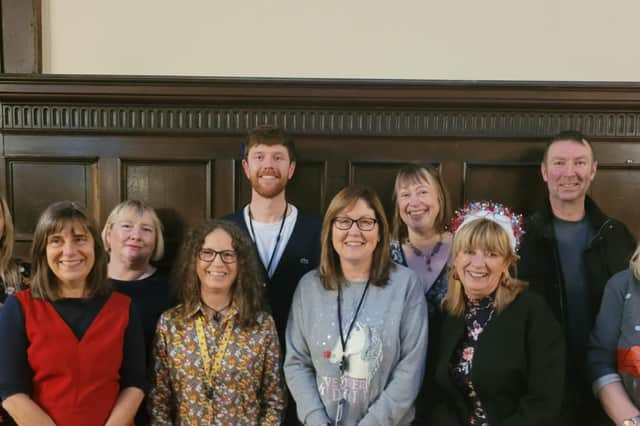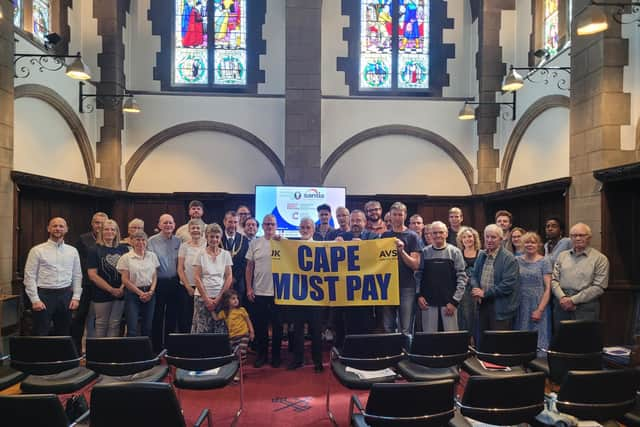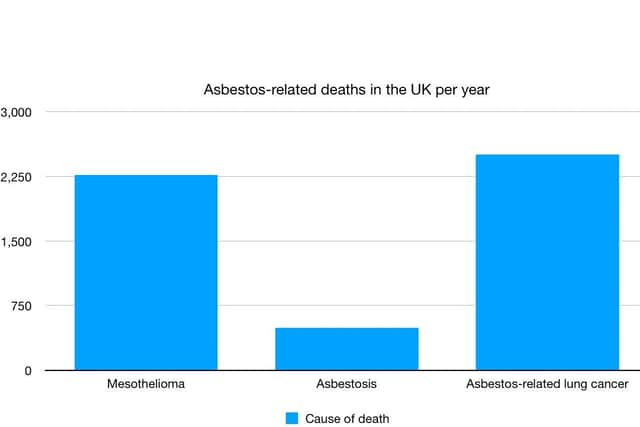Helping more than 300 people living with asbestos-related illness


Last year, Yorkshire and Humberside Asbestos Support Group (SARAG) helped 311 individuals access £4.3million – but there is still a lot of work to be done.
As SARAG prepare to celebrate their 25th year of providing life changing help to those in need Nevyn Stevenson, head of service and charity development, said: “Though people are well aware of asbestos and the effects it can have, more awareness can always be gained, especially about the help that’s available.”
Advertisement
Advertisement
In the UK, the once-vast use of asbestos in construction cast a long and dark shadow that continues to haunt lives today with asbestos-related deaths in the UK still numbering in excess of 5,000 a year according to The Health and Safety Executive (HSE).


Rotherham-based SARAG covers and provides help for the whole of Yorkshire and Humberside and over the past year the service has grown to provide more comprehensive support to individuals living with asbestos-related conditions as they continue to campaign for justice.
The services they provide can be broken down into three categories; expert benefits advice, emotional support and legal signposting, with individuals on average being £13,500 better off because of their support.
Mr Stevenson said: “Our goal is to be able to help every single person who has been affected by an asbestos related disease. Currently we are reaching around two thirds of that but with funding and support we hope to help everyone.”
Advertisement
Advertisement
Asbestos, revered for its fire-resistant properties, was widely used in buildings from the 1950s to the mid-1980s. However, its use was banned in 1999 due to its association with life-threatening diseases, particularly mesothelioma, a rare form of cancer that affects the lining of the lungs and other organs.


Paul Roberts, 57, lost his brother to mesothelioma. He said: “It was completely heartbreaking watching my brother become a fraction of the man he used to be.
“I wouldn’t wish it upon anyone.”
While the ban on asbestos in the UK represented a significant milestone, the battle against its legacy persists. Asbestos-containing materials still lurk in many older buildings, such as schools and hospitals, posing a continuous threat.
It is believed that around 75 per cent of public buildings still contain levels of asbestos. The toxic material is supposedly harmless if left unbothered, but this is not acceptable in the eyes of SARAG and other organisations who see this as a ticking time bomb.
Advertisement
Advertisement
Asbestos-related diseases often have a latency period, with symptoms manifesting years or even decades after exposure. Recognising these signs is crucial for early diagnosis and effective intervention.
Persistent coughing, shortness of breath, chest pain, and unexplained weight loss are common indicators. If an individual suspects exposure to asbestos, seeking medical attention promptly is paramount.
When asked about any plans for further growth, Mr Stevenson said: “We originally started in just Rotherham and Sheffield, and have now grown to provide support for the entirety of Yorkshire and the Humber.
“We have no immediate plans to grow, but the more people we can help the better.”
Advertisement
Advertisement
He admitted that funding is an obstacle, as with most charities, but SARAG are thankful for all the support they get.
With grant-aid funding for the longer term becoming increasingly difficult to secure, fundraising has become a key part of SARAG’s survival. This means that donations from individuals and organisations are especially important.
For those grappling with the devastating impact of asbestos-related diseases, charities such as SARAG and support networks stand ready to offer assistance – find out more at saragasbestossupport.org